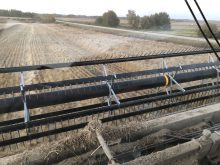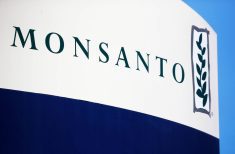When it first launched in 2016, the Canadian Centre for Food Integrity’s (CCFI) first executive director, Crystal Mackay, said in a release the centre “will serve as a critical hub to help the Canadian food system better understand the public’s questions and concerns and determine how to bridge the gap that currently exists between farm gates and dinner plates.”
The concept of bridging the gap between farm gate and dinner plate was not new at that time, but there had never been a co-ordinated effort to really tackle the issue.
That’s what CCFI set out to do, and has tried to do in its nine-year existence.
Read Also

Agriculture, including the pork sector, has monsters to slay in 2026
Tariffs, trade protectionism and disruption; Uncertainty is weighing against what should be positive signals for Manitoba’s pork sector.
But from its most recent public trust research, it hasn’t been successful.
The centre has measured public trust in Canada’s food system since its inception, using annual surveys to gauge consumer understanding and trust in food and farming.
According to its most recent data, positive perceptions of the food system by Canadians is dropping, instead of increasing.
The 2024 CCFI public trust research report indicated 31 per cent of Canadians believe Canada’s food system is on the right track, which is a drop of three percentage points from last year. Nearly the same amount – 29 per cent – feel the system is headed in the wrong direction, marking the first time in nearly a decade that the public is almost evenly divided on whether Canada’s food system is improving, the CCFI said.
Concern about food prices continues to be a top issue for 51 per cent of respondents, but only 45 per cent of Canadians hold a favourable view of the food system, a seven point drop from last year.
Ashley Bruner, director of research for the centre and one of the report authors said although trust indicators have been trending downward in the last couple years, she considers the 2024 survey results “troubling.”
I agree with her, the results are cause for concern. It shows that any efforts and messaging that have been developed in nearly a decade haven’t been working as hoped.
It’s doesn’t need to be considered a failure, as agriculture and farmers are still consistently considered to be more trustworthy than other industries such as forestry, finance or healthcare, and those that worth within them.
But it’s obvious there is still a large disconnect between the farm gate and dinner plate.
Bruner said “we’re losing ground to those loud detractors … People don’t think we are honest.”
By detractors, she means those engaging in fear-based marketing or the promotion and dissemination of misinformation.
Such detractors have always existed, and tools such as social media and artificial intelligence have amplified their voices in the last decade. But I don’t think the disconnect that exists can fall solely on their shoulders.
Has the effort to increase public trust been truly collaborative? When the CCFI first launched, I remember thinking what a momentous task lay ahead for its members, but was confident that those involved would work hard.
But competing priorities between sectors, escalating trade disputes, plus a global pandemic have made sharing a cohesive vision for Canada’s food system a very difficult task.
As Bruner said, any public trust efforts to date have certainly had value, but have been somewhat segregated. The CCFI is now planning more serious public relations efforts with cross-sector involvement.
It’s a much needed step to stop the decline in public trust, and push the needle upwards.















